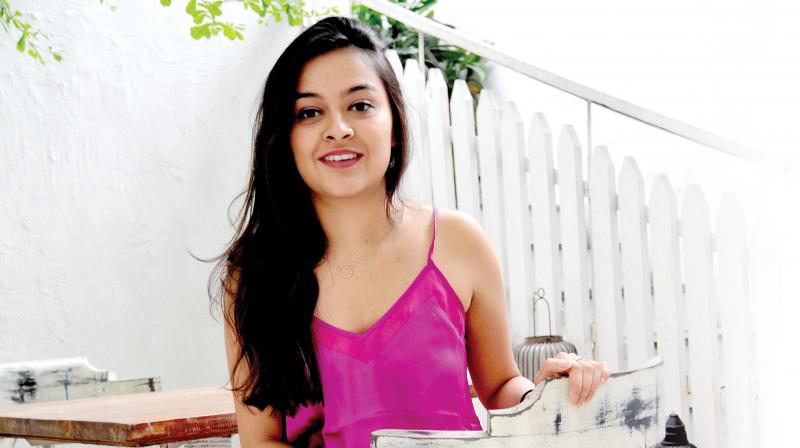Gate'way to paying it forward

Microsoft’s co-founder Bill Gates once said, “It’s fine to celebrate success but it is more important to heed the lessons of failure.” City girl Yashna Sureka’s story has a similar ring to it. She and her team of three came up with the idea for Aadhar pay around two years before we even heard about it. It is being used widely today as the Indian Government’s Digital India campaign, which ruined the trio’s plans. However, this did not deter her spirits. The 22-year-old Bengaluru girl has been awarded a grant from the prestigious Bill and Melinda Gates Foundation earlier this year, and she shares her story.
The Bengalurean who studied at Mount Carmel College for a year before she realised she wanted to explore a more diverse skillset, decided to change course early on and moved to Smith College, a women’s liberal arts college in Massachusetts, just outside Boston.
During college she met a few likeminded people that became a part of the team, “We are a trio. Darpan Bohara, who hails from Nepal, Christine Yee who is a Chinese American and I. It is a diverse bunch of people that I met in college who had similar interests as I did. Christine and I are Economics majors and Darpan has studied Computer Science,” Yashna explains.
So how did the coveted Bill and Melinda Gates Foundation grant happen, we ask. Yashna elaborates, “As part of our curriculum, we would identify things in our campus that we thought were a problem and come up with solutions. It could be a slippery slope causing accidents, or an architectural dent. The three of us happened to be put in the same group for these projects, and since two were from an economics backgrounds, finance attracted us. We came up with the idea for something like Aadhar Pay, two years before the government picked it up and we applied to the Bill and Melinda Gates Foundation with the idea. We were one of the 59 picked amongst 1,800 applications from across the world. We were awarded $100,000 as grant. We plan to start our groundwork by the end of June this year.”
For a layman, this project would entail working on the lines of “Enabling Merchant Acceptance of Mobile Money Payments” and it is meant specifically for India. “We proposed to create a fingerprint authorisation system, in partnership with a local bank as well as Aadhaar, in order to ensure scalability, portability, security, and creativity,” she adds.
The idea was proposed to Axis bank initially, but today the team works with IDFC. But when the Indian government’s Digital India initiative, Aadhaar Pay was officially launched, for the trio it meant that their idea had strength, though, sadly, they were no longer going to get credit for it. “As a result of these developments, we decided to stay committed to our idea by working toward the merchant and customer adoption of Aadhaar Pay by serving as business correspondents specifically targeting small business merchants. Then demonetisation happened, and Axis Bank could no longer partner with us due to their Aadhaar related pickle. We then approached IDFC Bank, which is the parent bank of Aadhaar Pay. By the end of June 2017, our groundwork started. We’re starting with Bengaluru first, and then will move into the really rural parts like Nelamangala. Our target right now is to identify 100 small scale merchants, educate them about Aadhaar Pay, help them acquire a fingerprint scanner and or a smart phone using our grant, and work towards customer acquisition,” explains the girl who understands the challenges of working on such a project.
With India identified as one of the countries leaning towards a cashless way of life, Yashna feels that growing up here, the challenges were closer home, therefore more understandable, “If it had been a different country that I had no knowledge about, its implementation would have been more difficult. It is a mark of a developed country; most of them have completely liquid cash. It’s transparent and easy.”
For now though, the stage is set for the trio’s foray into the working side of things, and Yashna realises that finance may not be what she wants to pursue, even though it is an obvious choice as her major. She would like to get into management consulting.

